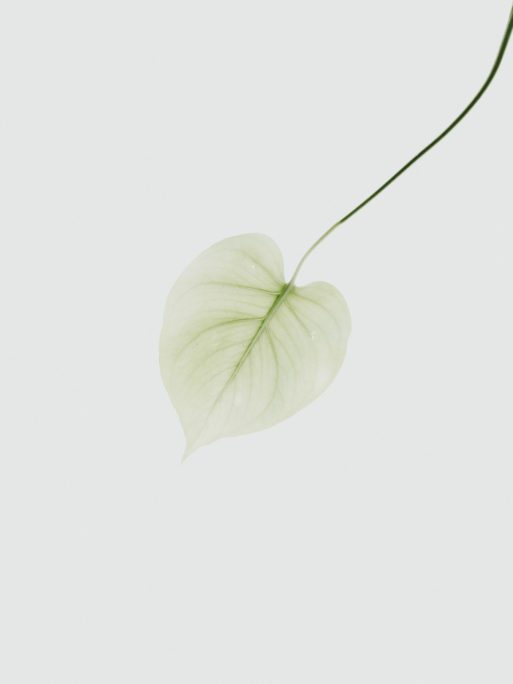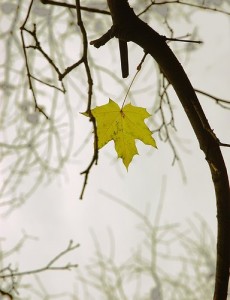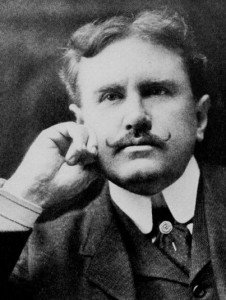 It’s been pouring rain outside my window all day long, leaving me stuck inside looking longingly out. Coincidentally, the story I’ve chosen to write about this week mirrors this feeling: “The Last Leaf,” by O. Henry, centers on a woman, Johnsy, who has fallen ill with pneumonia and is left bedridden. Every day she looks out her window and sees an ivy vine that is steadily losing leaves. Johnsy comes to believe that she is going to die as soon as the last leaf falls from the vine. Naturally, this worries her roommate Sue, as well as Behrman, the girls’ neighbor, who finds Johnsy’s idea to be nonsense.
It’s been pouring rain outside my window all day long, leaving me stuck inside looking longingly out. Coincidentally, the story I’ve chosen to write about this week mirrors this feeling: “The Last Leaf,” by O. Henry, centers on a woman, Johnsy, who has fallen ill with pneumonia and is left bedridden. Every day she looks out her window and sees an ivy vine that is steadily losing leaves. Johnsy comes to believe that she is going to die as soon as the last leaf falls from the vine. Naturally, this worries her roommate Sue, as well as Behrman, the girls’ neighbor, who finds Johnsy’s idea to be nonsense.
Johnsy’s doctor describes the girl’s lack of hope as a major factor in her illness: “I will do all that science, so far as it may filter through my efforts, can accomplish. But whenever my patient begins to count the carriages in her funeral procession I subtract 50 per cent from the curative power of medicines. If you will get her to ask one question about the new winter styles in cloak sleeves I will promise you a one-in-five chance for her, instead of one in ten.” Johnsy doesn’t bother asking about the “winter styles” because she doesn’t think she is going to survive until winter. She already envisions her “funeral procession.”
The ivy vine Johnsy stares at serves as a kind of symbol in the story: “An old, old ivy vine, gnarled and decayed at the roots, climbed half way up the brick wall. The cold breath of autumn had stricken its leaves from the vine until its skeleton branches clung, almost bare, to the crumbling bricks.” The vine is “gnarled and decayed,” only reaching “half way” up the wall, descriptions which match those of Johnsy in her present state, ailing and weak. The “cold breath of autumn” that causes the leaves to fall could be taken as a symbol for Johnsy’s pneumonia. Johnsy sees the symbolism herself: “I want to see the last one fall before it gets dark. Then I’ll go, too.” The “dark” is a symbol for death in this instance. She continues, “I’m tired of waiting. I’m tired of thinking. I want to turn loose my hold on everything, and go sailing down, down, just like one of those poor, tired leaves.”
Johnsy continues to watch the ivy vine as the days go on, but the last leaf stays put, even through the storms that rage outside. She finally comes to realize that she’s been silly in hinging her own life upon a leaf outside. She regains her optimism, saying, “‘Sudie, some day I hope to paint the Bay of Naples.’”
Meanwhile, Behrman, who is seldom mentioned, turns out to be a key character in the story. Henry describes him as “a failure in art.” Behrman goes on and on about how he is going to paint a masterpiece, and yet he never does: “In one corner was a blank canvas on an easel that had been waiting there for twenty-five years to receive the first line of the masterpiece.” But not long after the painter comes to see Johnsy, Sue finds out that he himself has died of pneumonia. She explains the circumstances to Johnsy: “His shoes and clothing were wet through and icy cold. They couldn’t imagine where he had been on such a dreadful night. And then they found a lantern, still lighted, and a ladder that had been dragged from its place, and some scattered brushes, and a palette with green and yellow colors mixed on it…” Finally, Sue makes a revelation: “…look out the window, dear, at the last ivy leaf on the wall. Didn’t you wonder why it never fluttered or moved when the wind blew? Ah, darling, it’s Behrman’s masterpiece – he painted it there the night that the last leaf fell.” It is Behrman’s art that saves Johnsy’s life, at the cost of his own. And though Behrman is tragically sacrificed in the process, he finally achieves his life’s goal, and Johnsy finally achieves a life, one that she would never have had if it weren’t for Behrman’s masterpiece.

 “The Last Leaf” by O. Henry
“The Last Leaf” by O. Henry



 “As Tears Go By” by Marianne Faithfull
“As Tears Go By” by Marianne Faithfull
 “The Sea” by John Banville
“The Sea” by John Banville
 Funeral Favors Offer Visitors a Tangible Memento
Funeral Favors Offer Visitors a Tangible Memento















